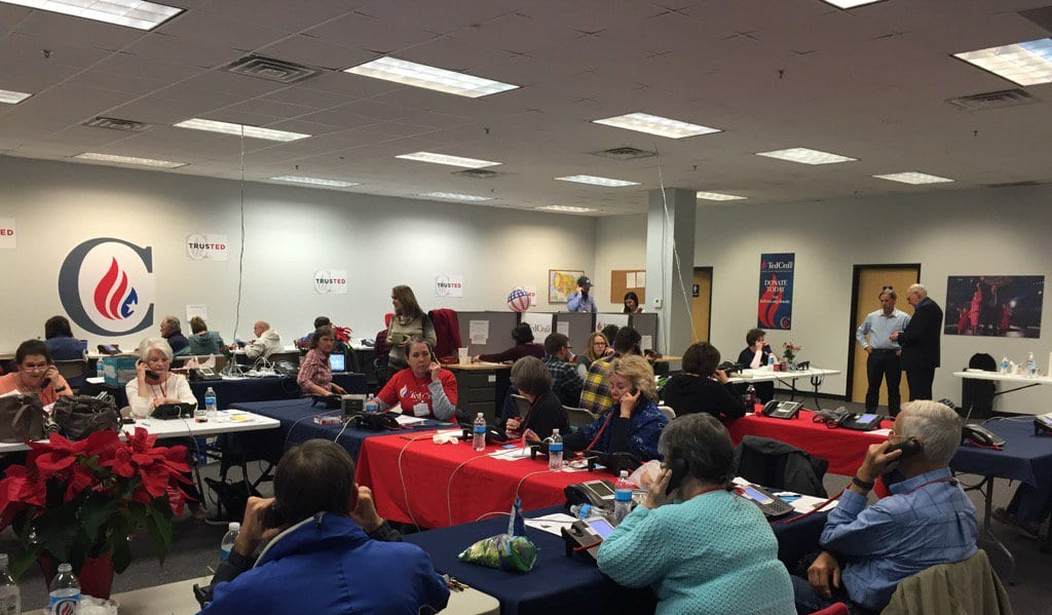On Monday night, the Republican Party gave the first victory of 2016 to the first Hispanic candidate for president of the United States, Ted Cruz.
Sen. Cruz won for many reasons: his outsider appeal, disciplined message, and sophisticated get-out-the-vote operation. But after two trips to Iowa to volunteer for Cruz, I noticed something else about the Cruz campaign that probably made a difference.
I’ve worked on many campaigns. I started with George W. Bush’s 2004 campaign when I was 14, and I’ve volunteered at the grassroots level every year since. A wise mentor once told me the kind of organization a leader builds says a lot about him.
There was something different about the Cruz campaign, including many signs of kindness and courage:
- Cruz’s Urbandale headquarters were like many campaign headquarters – office space in a suburban strip mall. Streams of volunteers came in to sit in rows of phone bank tables, and went out with literature to canvass neighborhoods door-to-door. Staff bustled in and out of small offices. But people were relatively calm and quiet. There was orderliness.
- Unlike every other campaign I had worked on, the Cruz operation encouraged volunteers to engage. Plainly typed signs all around the phone bank said, please flag someone down if someone has you stumped with a Cruz question – we want to earn as many supporters as possible! This communicated not only a commitment to discipline, but also to rational persuasion and fearless confidence that our cause is what the voters are looking for.
- One of the offices had been cleared of desks and chairs and instead contained colorful foam mats, toy blocks, and coloring books. I saw four or five kids putting together puzzles or coloring quietly while a mother made calls from a folding chair. Someone told me the kids’ playroom was Heidi Cruz’s idea. Families and children were welcome.
- After an hour on the phones, I noticed a frizzy-haired teenager emerge from the kitchenette with an old fashioned wooden tray of coffee, cream, and cups, walking quietly between the tables offering volunteers warm refreshments. Later, a middle-aged woman walked around gathering up empty cups and crumpled bottles of water. Every hour or so, another pair of volunteers followed suit, coffee tray then clean up.
- When 9 p.m. came and calls ceased, without anyone asking, people started tidying up, washing dishes, taking out trash, cleaning bathrooms, wiping down phones and tables. I couldn’t help but start doing the same – it was the intuitive thing to do. We weren’t going to leave these menial jobs to staff. There was a culture of service, a culture of order.
- At lunch and dinner, someone put out a little table beside the kitchen with plates of salad, broccoli, carrots, and chopped fruit. One day, word went out that an anonymous donor had bought everyone Chick-Fil-A. When the order came, it included grilled as well as fried chicken. Campaign food for volunteers is notoriously cheap junk food, an afterthought at best. What a contrast to see healthy snacks!
- When I stayed in Camp Cruz, the celebrated dorm for out-of-state Cruz volunteers, the first thing I noticed as I walked in was a gentleman folding freshly laundered sheets. I found out that you were expected to bring your own sheets and towels (something I had forgotten to do), but that this middle-aged man had volunteered to get and clean extras for those who forgot them, like me. The principle that brought these people to the campaign showed in how they lived together – we believed in order, but bottom-up order, not top-down control.
- Before heading out from Camp Cruz to go door-to-door in freezing single-digit weather, a college student said a quick prayer – for the safety and persuasiveness of volunteers, and that the country would be healed and united. People wanted to be here in Iowa because they wanted to serve something bigger than themselves.
- Cruz campaign manager Jeff Roe told the press just before the caucus, “Typically, any campaign, you try to get get your volunteers to speak for 30 seconds or less to a voter, so you can pound through the calls. In this campaign, we’re trying to have them have a conversation, so we like them to be 30 minutes or longer.” This was true to my experience. On the phone and on the doorstep, I was encouraged to ask voters, “What’s important to you? What are you looking for in a candidate?” I did my best to dialog with them. I didn’t convince everyone I talked to, but the voters almost always responded well to being treated this way, for this reason: conversation shows respect. It shows the value of every vote. It treats voters like human beings, not just numbers.
It takes courage for a campaign to trust its supporters to get into conversations after the script runs out. You have to have faith in your volunteers to be smart and kind. You have to be fearless enough to entrust the fate of your candidacy to these thousands of little disparate judgment calls and conversations.
Of course, courage and kindness are the hallmarks of our constitutional regime: in representative government, we believe in government by debating, deliberating, and coming to civil conclusions through persuasion, and it is fundamentally courageous for a nation to trust its citizens with self-government. The culture of the Cruz campaign in Iowa was bold and forceful, but also kind and thoughtful, and I don’t anticipate that changing going into other states. Through the lens of my experience, this is a campaign worthy of the republic it hopes their candidate will lead.










Join the conversation as a VIP Member